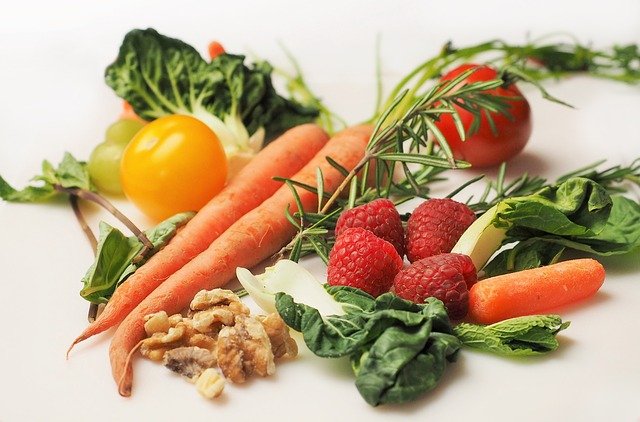
Developments in the Engineering Discipline
The Growing Field of Food Engineering
Read a summary using the INOMICS AI tool
Food engineering is a multi-disciplinary field that is responsible for the production and preservation of food. The focus of a food engineer is to constantly improve the food production process, whether that is introducing energy efficient machinery, or developing a new type of packaging to increase the shelf-life of a product. Working closely with food technologists and food scientists, their combined goal is to provide a healthy, tasty, long-lasting product while also ensuring global food supplies remain plentiful and safe. This diverse role is at the forefront of innovation within the food industry.
After many years of living in the shadow of the more established areas of engineering (agricultural, mechanical and chemical) food engineering is rightly starting to receive the recognition it deserves. The demands placed on food manufacturers to provide healthier and more environmentally-friendly food has led to large-scale investment in research and the subsequent development of new methods and technologies.

Increasing Global Demand
With the world’s population expected to increase to 9.7 billion by 2050, one of the main challenges faced is how to tackle this increased global consumption. Continuing to produce food the way we currently do is no longer an option. Research has shown that if we produce the same quantity of food in 2050 as produced in 2009, there will be a food deficit of over 900 calories per person per day. Additionally, with a reduction in the available arable land, combined with an increase in meat and milk consumption (which are resource-intensive), the methods of producing foods needs to become more efficient. Efficiency is already beginning to improve due to innovative food engineering technology. However, there’s still much progress to be made. Going forward, it’s essential that we are able to produce a greater quantity of food with even fewer resources.
Solving the Problem
With research and training the key to success in any field, the food engineering industry has taken huge strides to increase training opportunities over the last decade. Investment into Research and Development makes up a large percentage of most manufacturers’ expenditure - whether it’s developing a new gluten-free product, reducing packaging or looking at strategies to reduce food waste.
Food manufacturers have successfully developed sustainable substitutes. The most successful has been meat substitutes made from beans, lentils or soybeans. This substitute product has seen an increase of sales by 451% in the European market between 2013 and 2017. This use of more sustainable foods not only reduces the amount of resources required to grow the produce, but also provides many health benefits for consumers.
Other innovative ideas have dramatically changed the way we farm. For example, GrowUp Urban Farms are tackling the problem head-on. Their site in London uses vertical growing technologies and Controlled Environment Production (CEP) to produce sustainable products. This process involves growing multiple tiers of crops in optimum indoor conditions, resulting in an increased yield of salad and herb production. A further benefit of maximising urban space to farm is that food miles are significantly reduced resulting in a decline in carbon emissions and transportation costs.
To meet the growing demands of the world’s food requirements, a deeper understanding and knowledge of the potential for food production is needed. At the forefront of this approach is training, which is continually improving globally. In the UK, there are now several universities that offer comprehensive programmes in Food Engineering, including: Sheffield Hallam and Nottingham University. As the demand for food engineers grows, it’s likely that more universities will follow suit offering bachelors and master’s degrees.
Suggested Opportunities
- Practitioner / Consultant Job
- Posted 1 day ago
Manufacturing Engineer
At CV-Library in Derby, Großbritannien- Practitioner / Consultant Job
- Posted 2 months ago
Welder/Fabricator
At CV-Library in Bolton, GroßbritannienThe Pros and Cons of Food Engineering
As outlined above, successful food engineering will bring a host of benefits to the world’s food production and environment, and is essential in meeting the ever-growing demands of our population. One benefit includes the increased opportunities for improving health and diet. For example, research currently being carried by a consortium (led by Sheffield Hallam University) aims to manufacture a healthier cheese option that will reduce salt by 10% and fat by 20% in products containing baked cheese.
However, a major disadvantage of advanced food technology is that some food manufacturers may use unhealthy food substitutes in their products. The main reason for using these is to cut costs and increase the shelf-life of perishable foods. Unfortunately, any technology that provides an opportunity to cut corners will be seized upon by less-than-ethical businesses – that’s just the nature of free market capitalism. Overall, however, the overwhelming need to find new and sustainable ways to produce, transport and package food means that food engineering will mostly bring about positive results for society and will continue to grow as an industry.
-
- Konferenz
- (Online)
- Posted 2 weeks ago
1st International Electronic Conference on Games (IECGA 2025)
Between 15 Oct and 16 Oct
-
- Konferenz
- Posted 6 months ago
Call for Papers EcoMod2025 International Conference on Economic Modeling and Data Science
Between 3 Sep and 5 Oct in Stuttgart, Deutschland
-
- Workshop, Conference
- (Partially Online)
- Posted 1 month ago
International Conference on Applied Business and Economics - ICABE 2025 - 21th Edition - A HYBRID CONFERENCE
Between 3 Nov and 5 Nov in Kuwait City, Kuwait












